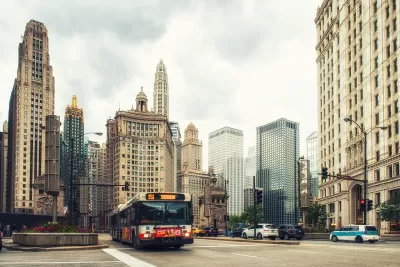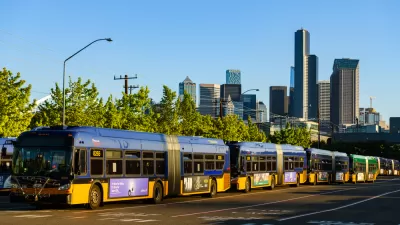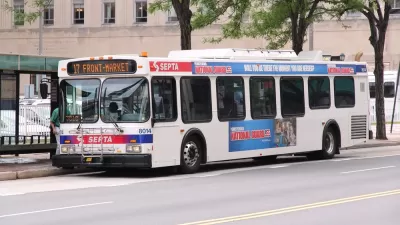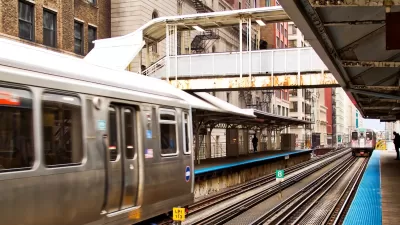An RTA report highlights a need for state funding to bridge an imminent $730 budget shortfall, calling for an approach that relies less heavily on fare revenue.

A report from the Chicago area’s Regional Transit Authority (RTA) highlights the system’s overreliance on fare revenue and recommends additional state funding for free and reduced-fare programs for low-income riders.
According to a Streetsblog Chicago article by John Greenfield, “The RTA, the CTA, Metra, and Pace have at least 15 specialized free and reduced fare programs, such as the RTA's Ride Free and Reduced Fare programs, which currently have 317,000 people enrolled and provided more than 82 million rides last year.” The report asserts that fully funding the Paratransit and reduced fare programs is necessary, but will raise the projected budget gap to roughly $730 million by 2026.
“The RTA report recommends addressing that challenge by creating an income-based reduced fare program called Regional Access. It also calls [for] full state funding of ADA Paratransit and Regional Access, which would help reduce the $730 million budget gap. Lastly, it proposes unlocking collaborative pricing policies across the region by investing in technology and funding reform.” The report also highlights the benefits of a regional fare that would let riders transition seamlessly across systems.
FULL STORY: New RTA Report recommends income-based fare programs

Alabama: Trump Terminates Settlements for Black Communities Harmed By Raw Sewage
Trump deemed the landmark civil rights agreement “illegal DEI and environmental justice policy.”

Planetizen Federal Action Tracker
A weekly monitor of how Trump’s orders and actions are impacting planners and planning in America.

How Atlanta Built 7,000 Housing Units in 3 Years
The city’s comprehensive, neighborhood-focused housing strategy focuses on identifying properties and land that can be repurposed for housing and encouraging development in underserved neighborhoods.

In Both Crashes and Crime, Public Transportation is Far Safer than Driving
Contrary to popular assumptions, public transportation has far lower crash and crime rates than automobile travel. For safer communities, improve and encourage transit travel.

Report: Zoning Reforms Should Complement Nashville’s Ambitious Transit Plan
Without reform, restrictive zoning codes will limit the impact of the city’s planned transit expansion and could exclude some of the residents who depend on transit the most.

Judge Orders Release of Frozen IRA, IIJA Funding
The decision is a victory for environmental groups who charged that freezing funds for critical infrastructure and disaster response programs caused “real and irreparable harm” to communities.
Urban Design for Planners 1: Software Tools
This six-course series explores essential urban design concepts using open source software and equips planners with the tools they need to participate fully in the urban design process.
Planning for Universal Design
Learn the tools for implementing Universal Design in planning regulations.
Jessamine County Fiscal Court
Caltrans
Institute for Housing and Urban Development Studies (IHS)
City of Grandview
Harvard GSD Executive Education
Toledo-Lucas County Plan Commissions
Salt Lake City
NYU Wagner Graduate School of Public Service





























